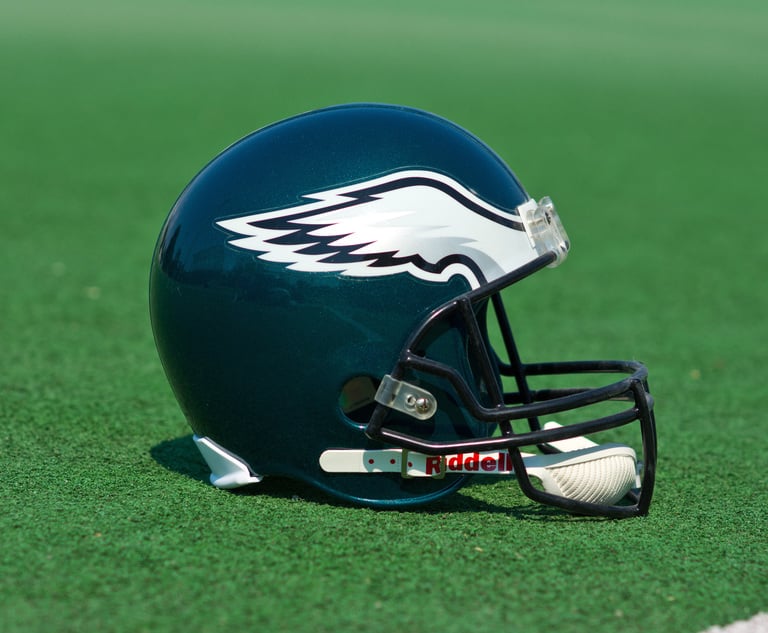Pa. Justices to Mull if Post-Happy Hour Car Crash Was Work-Related Injury
A potential ruling in the claimant's favor could cause Pennsylvania employers to think twice before hosting after-hours employee get-togethers.
January 21, 2020 at 03:49 PM
4 minute read
 Photo: Master1305/Shutterstock.com
Photo: Master1305/Shutterstock.com
The Pennsylvania Supreme Court is set to determine whether an injury suffered in a motor vehicle accident on the way home from a work-sponsored social event is covered under the state's Workers' Compensation Act.
A potential ruling in the claimant's favor could cause Pennsylvania employers to think twice before hosting after-hours employee get-togethers.
The justices granted allocatur in Peters v. Workers' Compensation Appeal Board (Cintas) after the Commonwealth Court affirmed rulings by a workers' compensation judge and the Workers' Compensation Appeal Board that claimant Jonathan Peters was not entitled to benefits for injuries he sustained in a crash following a happy hour with his co-workers.
In July 2019, a Commonwealth Court en banc panel, citing language from the state Superior Court's 1966 decision in Maher v. Hallmark Cards, ruled 5-2 that once Peters passed the exit for his house on his way from the area where he was working as a traveling salesman to a work-sponsored happy hour at the Tilted Kilt, his "'homeward trip'" from his place of employment had ended.
Therefore, the majority said, Peters was no longer within the course and scope of his employment by the time he arrived at the Tilted Kilt.
"Claimant clearly had the option of avoiding any hazards simply by choosing to take the exit home as opposed to bypassing his exit to attend happy hour," Judge Anne Covey wrote for the majority. "Under the circumstances, claimant's travel from the Tilted Kilt to his home cannot be considered in the course and scope of his employment."
Covey was joined in full by Judges Patricia McCullough, Christine Fizzano Cannon and Ellen Ceisler and joined in the result by Judge Michael Wojcik.
The majority also sided with the WCJ regarding Peters' argument that attendance at the happy hour was mandatory.
The WCJ's opinion stated, "This [WCJ] had the opportunity to review the bearing and demeanor of claimant, and while it is unfortunate claimant was involved in a motor vehicle accident on February 27, 2015, his representations that the event was, in his mind, mandatory at the Tilted Kilt that evening is rejected in light of the more credible testimony of his colleagues."
Covey said that accepting Peters' argument that the happy hour was mandatory "would require this court to reverse the WCJ's credibility determination that claimant was not required to attend happy hour."
"The law expressly prohibits an appellate court from taking such action," Covey said.
Judge Renee Cohn Jubelirer filed a dissenting opinion, joined by President Judge Mary Hannah Leavitt, arguing: "Based on our precedent, I cannot conclude, as a matter of law, that driving by one's exit home on a highway to attend an event organized and paid for by one's employer is of such a 'pronounced nature' to constitute abandonment of one's employment or is 'wholly foreign' to one's employment."
"Here, claimant attended the employer-sponsored social event at the Tilted Kilt immediately following his last sales appointment," Jubelirer said. "Employer paid for appetizers and drinks. Whether claimant voluntarily attended the event does not sever the ties to employer. Nor does the fact that the event's purpose was more social than business related."
Wojcik penned a concurring opinion, noting that while he believed the question of whether the happy hour took place at a location before or after the highway exit to Peters' home was irrelevant, the WCJ's finding that attendance was voluntary meant Peters was ineligible for benefits.
On Jan. 8, the state Supreme Court agreed to hear arguments on two questions: "What constitutes an abandonment of employment such that a traveling employee is not entitled to benefits under the Pennsylvania Workers' Compensation Act?" and "Is an injury compensable under the Pennsylvania Workers' Compensation Act when an employee is injured while returning home after attending a work-sponsored social event?"
Counsel for Peters, Alexis Berg-Townsend of Cohen, Feeley, Altemose & Rambo in Whitehall, could not immediately be reached for comment on the Supreme Court's allocatur grant; nor could counsel for Peters' employer, Cintas Corp., Kathleen Pochettino of Cipriani & Werner in Philadelphia.
This content has been archived. It is available through our partners, LexisNexis® and Bloomberg Law.
To view this content, please continue to their sites.
Not a Lexis Subscriber?
Subscribe Now
Not a Bloomberg Law Subscriber?
Subscribe Now
NOT FOR REPRINT
© 2025 ALM Global, LLC, All Rights Reserved. Request academic re-use from www.copyright.com. All other uses, submit a request to [email protected]. For more information visit Asset & Logo Licensing.
You Might Like
View All

Pennsylvania Law Schools Are Seeing Double-Digit Boosts in 2025 Applications
5 minute read
Pa. Defense Firm Sued by Client Over Ex-Eagles Player's $43.5M Med Mal Win
3 minute read
Am Law 100 Lateral Partner Hiring Rose in 2024: Report
Trending Stories
- 1Uber Files RICO Suit Against Plaintiff-Side Firms Alleging Fraudulent Injury Claims
- 2The Law Firm Disrupted: Scrutinizing the Elephant More Than the Mouse
- 3Inherent Diminished Value Damages Unavailable to 3rd-Party Claimants, Court Says
- 4Pa. Defense Firm Sued by Client Over Ex-Eagles Player's $43.5M Med Mal Win
- 5Losses Mount at Morris Manning, but Departing Ex-Chair Stays Bullish About His Old Firm's Future
Who Got The Work
J. Brugh Lower of Gibbons has entered an appearance for industrial equipment supplier Devco Corporation in a pending trademark infringement lawsuit. The suit, accusing the defendant of selling knock-off Graco products, was filed Dec. 18 in New Jersey District Court by Rivkin Radler on behalf of Graco Inc. and Graco Minnesota. The case, assigned to U.S. District Judge Zahid N. Quraishi, is 3:24-cv-11294, Graco Inc. et al v. Devco Corporation.
Who Got The Work
Rebecca Maller-Stein and Kent A. Yalowitz of Arnold & Porter Kaye Scholer have entered their appearances for Hanaco Venture Capital and its executives, Lior Prosor and David Frankel, in a pending securities lawsuit. The action, filed on Dec. 24 in New York Southern District Court by Zell, Aron & Co. on behalf of Goldeneye Advisors, accuses the defendants of negligently and fraudulently managing the plaintiff's $1 million investment. The case, assigned to U.S. District Judge Vernon S. Broderick, is 1:24-cv-09918, Goldeneye Advisors, LLC v. Hanaco Venture Capital, Ltd. et al.
Who Got The Work
Attorneys from A&O Shearman has stepped in as defense counsel for Toronto-Dominion Bank and other defendants in a pending securities class action. The suit, filed Dec. 11 in New York Southern District Court by Bleichmar Fonti & Auld, accuses the defendants of concealing the bank's 'pervasive' deficiencies in regards to its compliance with the Bank Secrecy Act and the quality of its anti-money laundering controls. The case, assigned to U.S. District Judge Arun Subramanian, is 1:24-cv-09445, Gonzalez v. The Toronto-Dominion Bank et al.
Who Got The Work
Crown Castle International, a Pennsylvania company providing shared communications infrastructure, has turned to Luke D. Wolf of Gordon Rees Scully Mansukhani to fend off a pending breach-of-contract lawsuit. The court action, filed Nov. 25 in Michigan Eastern District Court by Hooper Hathaway PC on behalf of The Town Residences LLC, accuses Crown Castle of failing to transfer approximately $30,000 in utility payments from T-Mobile in breach of a roof-top lease and assignment agreement. The case, assigned to U.S. District Judge Susan K. Declercq, is 2:24-cv-13131, The Town Residences LLC v. T-Mobile US, Inc. et al.
Who Got The Work
Wilfred P. Coronato and Daniel M. Schwartz of McCarter & English have stepped in as defense counsel to Electrolux Home Products Inc. in a pending product liability lawsuit. The court action, filed Nov. 26 in New York Eastern District Court by Poulos Lopiccolo PC and Nagel Rice LLP on behalf of David Stern, alleges that the defendant's refrigerators’ drawers and shelving repeatedly break and fall apart within months after purchase. The case, assigned to U.S. District Judge Joan M. Azrack, is 2:24-cv-08204, Stern v. Electrolux Home Products, Inc.
Featured Firms
Law Offices of Gary Martin Hays & Associates, P.C.
(470) 294-1674
Law Offices of Mark E. Salomone
(857) 444-6468
Smith & Hassler
(713) 739-1250





